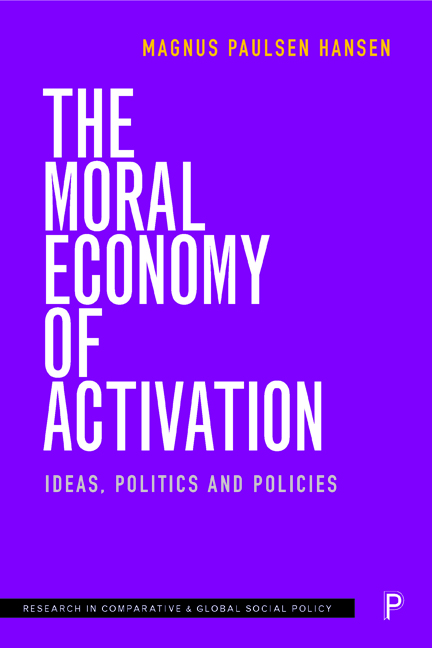Preface
Published online by Cambridge University Press: 10 March 2021
Summary
The seeds for the thoughts developed in this book go back to 2010 when the shockwaves of the financial crisis reached the Danish labour market and workers began to feel the effects of unemployment. A year later, a centre-left coalition led by the Social Democrats came to power, replacing a decade of centre-right government. To many, at the time, the change in government portended a paradigmatic return to demand-side, redistribution, and social security measures. However, the response to the crisis was rather a consolidation of present ideas and policies. In other words, post-crisis reforms strengthened the ‘activating’ instruments throughout the unemployment systems. Unemployment continued to be a matter of making the unemployed active. My initial ideas about capturing this ‘strange non-death of activation’ (Hansen and Leschke, 2017) were developed with Mathias Herup Nielsen, who later took these events as a point of departure for his own analysis (Nielsen, 2014). However, it was Ove K. Pedersen who offered me the possibility of turning my rather loose thoughts into a proper research project. I am extremely grateful for his wise counselling and support throughout the years, and for the opportunities he gave me for discussing my ideas – in particular for offering up his office as a rare, safe space for curious and creative thinking – all the way to the last draft of the manuscript. At the then Department of Business of Politics at Copenhagen Business School, Ivar Kjær, Stefano Ponte, John L. Campbell, Janine Leschke, Tim Holst Celik, Martin B. Carstensen and Juan Ignacio Staricco all contributed with sometimes critical, but always thoughtful, comments on earlier drafts. I would also like to thank the committee members, Caroline de la Porte, Kerstin Jacobsson, and Tom Boland for their thorough and perceptive assessment of the dissertation.
In France, the response to the financial crisis was also one of more ‘active’ reforms of the labour market. However, while the Danish centre-left government's policies of sanctions and control were generally supported by the population, the attempt by the then French president François Hollande to introduce supposed Danish-style labour market reforms was met with hostility, peaking with large-scale ‘nuit debout’ protests in 2016.
- Type
- Chapter
- Information
- The Moral Economy of ActivationIdeas, Politics and Policies, pp. xi - xiiPublisher: Bristol University PressPrint publication year: 2019

